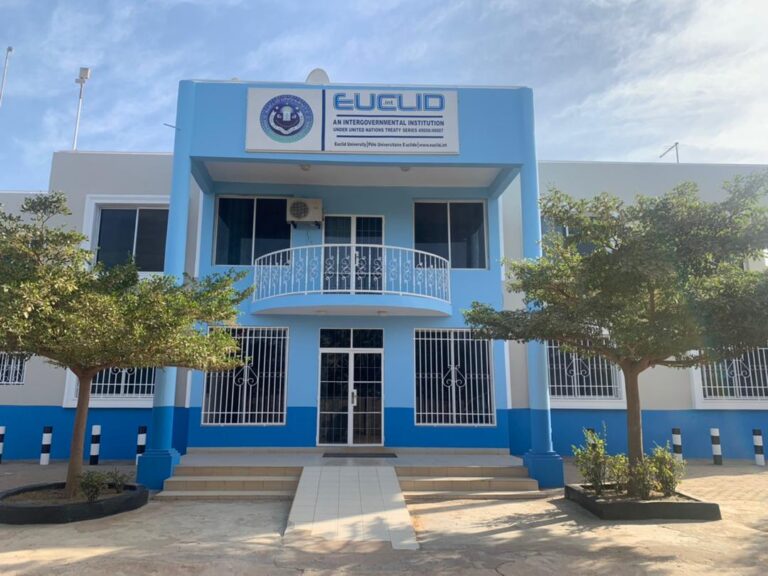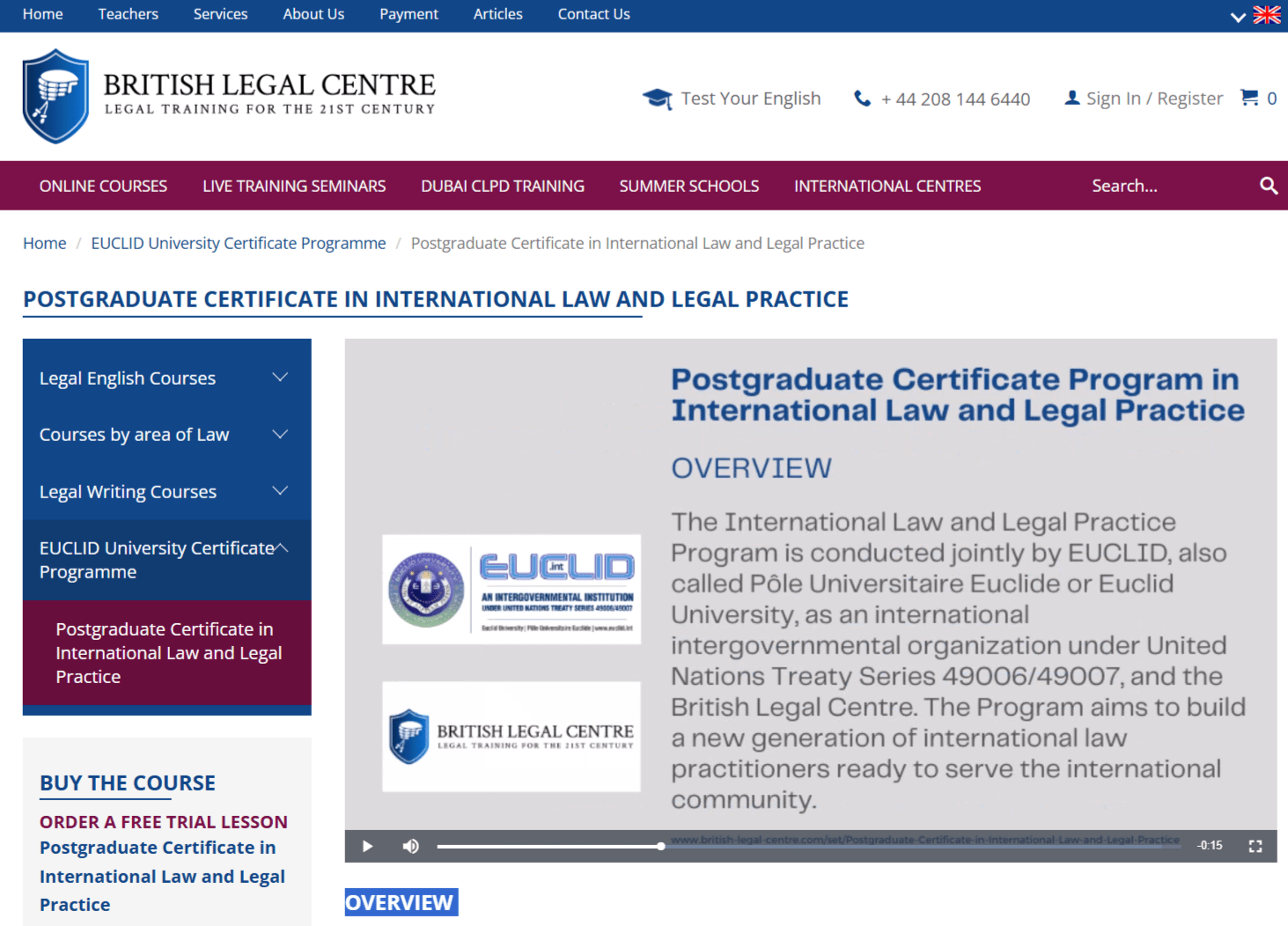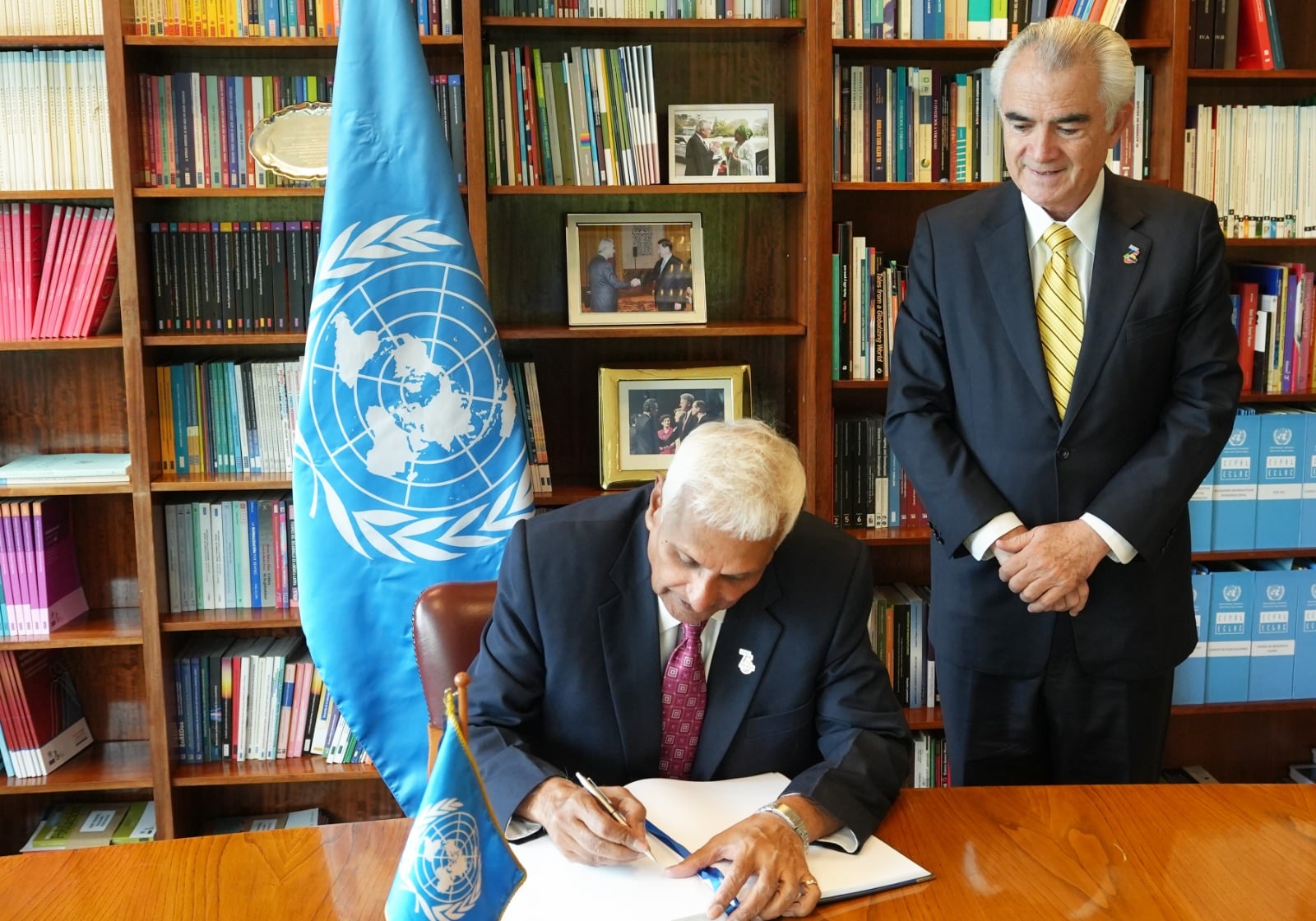AN INTERGOVERNMENTAL UNIVERSITY UNDER UNITED NATIONS TS 49006/7 — EUCLID RESPONSIVE SITE —

- Overview | Legal Status
- Memberships | Partnerships
- Accreditation | Recognition
- Officials | Administration
- Participating States
- EUCLID Institutes
- HQs and Offices
- History | Timeline
- Annual Reports
- Groups and Procedures
- General Public
- Government Officials
- Scholarship Programs
- Why choose EUCLID?
- ECOWAS Region Applicants
- Registrar’s Office
- Master’s Programs @ EUCLID
- PhD Programs @ EUCLID
- Tuition and Fees
- Pedagogical Approach
- Faculty Profiles
- Academic Standards
- Joint and Dual Degrees
- Online Programs @ EULER
- Alumni Profiles and Quotes
- Academic Journal IRPJ
- News & Events
- EUCLID Institutional and CMS
- EUCLID Treaty Site
- LinkedIn (Academic)

Online PhD in Bioethics (Clinical and Global Health Bioethics)
Quick access, program type, school / institute.
Online (Asynchonous)
USD 169 per credit hour
Scholarships
Full (officials of PS); 15% off (ECOWAS and IGOs)
EUCLID, an intergovernmental treaty-based institution with a university mandate, offers to select students from the general public an online PhD in bioethics which covers both clinical and global health bioethical issues.
It is, to date, the only PhD program in this field offered by an international intergovernmental organization. Its purpose is to prepare highly qualified public health professionals able to serve in civil service, international organizations , health care institutions, as well as non-governmental organizations globally.

Academic Presentation
Bioethics is a discipline still lacking true international and interdisciplinary experts. Few programs are truly international in scope so as to fully prepare graduates for global civil service careers that will engage a wide variety of clinical and public health challenges, including end-of-life care, gender issues, clinical trial ethics, etc.
To answer this challenge, EUCLID has designed a world-class doctoral curriculum, which is presented here with full documentation of syllabus and faculty resources, as well as total tuition. This documentation will enable potential students to determine if this program is suitable and aligned with their career objectives.
AUDIENCE | INTEREST GROUPS
This unique PhD program focuses on both theoretical as well as practical and policy aspects of ethics and bioethics.
This doctoral program was primarily designed to serve civil servants of EUCLID’s Participating States, but it is also open to the general public as an excellent route to pursue a career within inter-governmental bodies, NGOs and the public sector.
Thanks to its low tuition and institutional relationships, it is expected to be of special interest to Global South/African students.

MORE INFORMATION:
- Admissions Checklist
- Accreditation
- Admissions Group
- Alumni Profiles
Requirements
Featured video, program outline.
ELECTIVE COURSES
Note: All courses available in the EUCLID database can be considered elective, after review and approval by your EUCLID counselor. Graduate level degrees may include a certain number of undergraduate electives. Likewise, undergraduate roadmaps may be built using graduate level courses. Again, prospective students are reminded that the final degree roadmap must be reviewed and approved by the Admissions Officer to ensure logical progression of subjects covered and conformity with international standards.
Note: to consult the current and official curriculum/list of courses from the EUCLID CMS database, please visit: EUCLID Available Degree Programs and follow the program link.
Employment Outlook

Why Study @ EUCLID?
EUCLID is the only intergovernmental, treaty-based university with a UN registered charter and recognized expertise in diplomacy. Join the alma mater of ambassadors and senior officials globally.
Note: if the PDF brochure is unavailable (or outdated by 2 years), please contact [email protected]
EUCLID AT WORK: RECENT NEWS AND ARTICLES

Postgraduate Certificate in International Law and Legal Practice
OVERVIEW The International Law and Legal Practice Program is conducted...

Gambia to Host OIC Summit
On the 04th and 05th of May 2024, the Republic...

EUCLID publishes 2023 Annual Report
The EUCLID Secretariat General is pleased to announce the release...

EUCLID Secretary-General Dookeran delivers UN ECLAC lecture
As part of the commemoration of the seventy-fifth anniversary of...
The appropriate office and officials will reply within 2 business days. If calling a EUCLID office, make sure to call the correct location based on your profile.
The application review process takes 4-6 business days after receipt of documents.

EUCLID (Pôle Universitaire Euclide |Euclid University) A treaty-based organization with international liaison and representative offices in: New York, Washington DC, Montpellier (France)
Headquarters: Bangui, Central African Republic Commonwealth / ECOWAS Headquarters: Banjul, The Gambia
Studying with EUCLID
- Ph.D. / Doctorate
- Master's degrees
- Bachelor's degrees
- Habilitation and Post-Doc
- Specialized Certificates
Quick Access
- News and Events

Legal Protection Switzerland
About EUCLID
- Legal Status
- Offices and HQs

The EUCLID Charter in UNTS
EUCLID | WWW.EUCLID.INT: THE GLOBAL, INTER-DISCIPLINARY, TREATY-BASED UNIVERSITY
- Biochemistry and Molecular Biology
- Biostatistics
- Environmental Health and Engineering
- Epidemiology
- Health Policy and Management
- Health, Behavior and Society
- International Health
- Mental Health
- Molecular Microbiology and Immunology
- Population, Family and Reproductive Health
- Program Finder
- Admissions Services
- Course Directory
- Academic Calendar
- Hybrid Campus
- Lecture Series
- Convocation
- Strategy and Development
- Implementation and Impact
- Integrity and Oversight
- In the School
- In the Field
- In Baltimore
- Resources for Practitioners
- Articles & News Releases
- In The News
- Statements & Announcements
- At a Glance
- Student Life
- Strategic Priorities
- Inclusion, Diversity, Anti-Racism, and Equity (IDARE)
- What is Public Health?
Concentration in Bioethics and Health Policy
Offered By: Department of Health Policy and Management
Onsite | Full-Time | 4 - 5 years
- MSPH Field Placements
- MSPH Frequently Asked Questions
- MSPH Timeline
- Master's Essays
- Master of Arts and Master of Science in Public Health (MA/MSPH)
- Master of Arts in Public Health Biology (MAPHB)
- Master of Bioethics (MBE)
- Mission, Vision, and Values
- Student Experience
- Program Outcomes
- For Hopkins Undergraduate Students
- Master of Health Science (MHS) - Department of Biochemistry and Molecular Biology
- Master of Health Science (MHS) - Department of Epidemiology
- Alumni Update
- MHS Combined with a Certificate Program
- Master of Health Science (MHS) - Department of Molecular Microbiology and Immunology
- Bachelor's/MHS in Health Economics and Outcomes Research
- MHS HEOR Careers
- Frequently Asked Questions
- Master of Health Science (MHS)
- Concurrent Schoolwide Master of Health Science Program in Biostatistics
- Master of Health Science - Department of Population, Family and Reproductive Health
- Master of Health Science Online (MHS) - Department of Population, Family and Reproductive Health
- Careers in Health Economics
- Core Competencies
- Meet the Director
- What is Health Economics
- MPH Capstone Schedule
- Concentrations
- Online/Part-Time Format
- Requirements

Tuition and Funding
- Executive Board Faculty
- Master of Science (ScM) - Department of Biochemistry and Molecular Biology
- Master of Science (ScM) - Department of Biostatistics
- Master of Science (ScM) - Department of Epidemiology
- Master of Science (ScM) - Department of Molecular Microbiology and Immunology
- Bachelor's/MSPH in Health Policy
- FAQ for MSPH in Health Policy
- Field Placement Experience
- MSPH Capstone
- MSPH Practicum
- Required and Elective Courses
- Student Timeline
- Career Opportunities
- 38-Week Dietetics Practicum
- Completion Requirements
- MSPH/RD Program FAQ
- Program Goals
- Biophysics and Structural Biology
- Cancer Biology
- Cell Biology
- Cellular Stress and Cell Signaling
- Chemical Biology and Proteomics
- Genetics, Genomics, and Gene Regulation
- Immunology and Infectious Diseases
- Translational Research
- Program Scope
- Application Fee Waiver Requirements
- Doctor of Philosophy (PhD) - Department of Biostatistics
- Doctor of Philosophy (PhD) - Department of Epidemiology
- Program Goals and Expectations
- Doctor of Philosophy (PhD) - Department of Molecular Microbiology and Immunology
- PhD Frequently Asked Questions
- Doctor of Philosophy (PhD) in Clinical Investigation
- Recent Graduates and Dissertation Titles
- PhD Funding
- PhD TA Requirement
- Recent Dissertation Titles
- JHU-Tsinghua Doctor of Public Health
- Prerequisites
- Concentration in Women’s and Reproductive Health
- Custom Track
- Concentration in Environmental Health
- Concentration in Global Health: Policy and Evaluation
- Concentration in Health Equity and Social Justice
- Concentration in Health Policy and Management
- Concentration in Implementation Science
- Combined Bachelor's / Master's Programs
- Concurrent MHS Option for BSPH Doctoral Students
- Concurrent MSPH Option for BSPH Doctoral students
- Doctor of Medicine and Doctor of Philosophy (MD/PhD)
- Adolescent Health Certificate Program
- Bioethics Certificate Program
- Clinical Trials Certificate Program
- Community- Based Public Health Certificate Program
- Demographic Methods Certificate Program
- Epidemiology for Public Health Professionals Certificate Program
- Evaluation: International Health Programs Certificate Program
- Frequently Asked Questions for Certificate Programs
- Gender and Health Certificate Program
- Gerontology Certificate Program
- Global Digital Health Certificate Program
- Global Health Certificate Program
- Global Health Practice Certificate Program
- Health Communication Certificate Program
- Health Disparities and Health Inequality Certificate Program
- Health Education Certificate Program
- Health Finance and Management Certificate Program
- Health and Human Rights Certificate Program
- Healthcare Epidemiology and Infection Prevention and Control Certificate Program
- Humanitarian Health Certificate Program
- Implementation Science and Research Practice Certificate Program
- Injury and Violence Prevention Certificate Program
- International Healthcare Management and Leadership Certificate Program
- Leadership for Public Health and Healthcare Certificate Program
- Lesbian, Gay, Bisexual, Transgender, and Queer (LGBTQ) Public Health Certificate Program
- Maternal and Child Health Certificate Program
- Mental Health Policy, Economics and Services Certificate Program
- Non-Degree Students General Admissions Info
- Pharmacoepidemiology and Drug Safety Certificate Program
- Population Health Management Certificate Program
- Population and Health Certificate Program
- Public Health Advocacy Certificate Program
- Public Health Economics Certificate Program
- Public Health Informatics Certificate Program
- Public Health Practice Certificate Program
- Public Health Training Certificate for American Indian Health Professionals
- Public Mental Health Research Certificate Program
- Quality, Patient Safety and Outcomes Research Certificate Program
- Quantitative Methods in Public Health Certificate Program
- Requirements for Successful Completion of a Certificate Program
- Rigor, Reproducibility, and Responsibility in Scientific Practice Certificate Program
- Risk Sciences and Public Policy Certificate Program
- Spatial Analysis for Public Health Certificate Program
- Training Certificate in Public Health
- Tropical Medicine Certificate Program
- Tuition for Certificate Programs
- Vaccine Science and Policy Certificate Program
- Online Student Experience
- Barcelona Information
- Registration, Tuition, and Fees
- Agency Scholarship Application
- General Scholarship Application
- UPF Scholarship Application
- Course Evaluations
- Online Courses
- Registration
- General Institute Tuition Information
- International Students
- Directions to the Bloomberg School
- All Courses
- Important Guidance for ONSITE Students
- D.C. Courses
- Registration and Fees
- Cancellation and Closure Policies
- Application Procedures
- Career Search
- Current Activities
- Current Trainees
- Related Links
- Process for Appointing Postdoctoral Fellows
- Message from the Director
- Program Details
- Admissions FAQ
- Current Residents
- Elective Opportunities for Visiting Trainees
- What is Occupational and Environmental Medicine?
- Admissions Info
- Graduates by Year
- Compensation and Benefits
- How to Apply
- Academic Committee
- Course Details and Registration
- Tuition and Fees
- ONLINE SOCI PROGRAM
- Principal Faculty
- General Application
- JHHS Application
- Our Faculty
- Descripción los Cursos
- Programa en Epidemiología para Gestores de Salud, Basado en Internet
- Consultants
- Britt Dahlberg, PhD
- Joke Bradt, PhD, MT-BC
- Mark R. Luborsky, PhD
- Marsha Wittink, PhD
- Rebekka Lee, ScD
- Su Yeon Lee-Tauler, PhD
- Theresa Hoeft, PhD
- Vicki L. Plano Clark, PhD
- Program Retreat
- Mixed Methods Applications: Illustrations
- Announcements
- 2023 Call for Applications
- Jennifer I Manuel, PhD, MSW
- Joke Bradt, PhD
- Josiemer Mattei, PhD, MPH
- Justin Sanders, MD, MSc
- Linda Charmaran, PhD
- Nao Hagiwara, PhD
- Nynikka R. A. Palmer, DrPH, MPH
- Olayinka O. Shiyanbola, BPharm, PhD
- Sarah Ronis, MD, MPH
- Susan D. Brown, PhD
- Tara Lagu, MD, MPH
- Theresa Hoft, PhD
- Wynne E. Norton, PhD
- Yvonne Mensa-Wilmot, PhD, MPH
- A. Susana Ramírez, PhD, MPH
- Animesh Sabnis, MD, MSHS
- Autumn Kieber-Emmons, MD, MPH
- Benjamin Han, MD, MPH
- Brooke A. Levandowski, PhD, MPA
- Camille R. Quinn, PhD, AM, LCSW
- Justine Wu, MD, MPH
- Kelly Aschbrenner, PhD
- Kim N. Danforth, ScD, MPH
- Loreto Leiva, PhD
- Marie Brault, PhD
- Mary E. Cooley, PhD, RN, FAAN
- Meganne K. Masko, PhD, MT-BC/L
- PhuongThao D. Le, PhD, MPH
- Rebecca Lobb, ScD, MPH
- Allegra R. Gordon, ScD MPH
- Anita Misra-Hebert, MD MPH FACP
- Arden M. Morris, MD, MPH
- Caroline Silva, PhD
- Danielle Davidov, PhD
- Hans Oh, PhD
- J. Nicholas Dionne-Odom, PhD RN ACHPN
- Jacqueline Mogle, PhD
- Jammie Hopkins, DrPH, MS
- Joe Glass, PhD MSW
- Karen Whiteman, PhD MSW
- Katie Schultz, PhD MSW
- Rose Molina, MD
- Uriyoán Colón-Ramos, ScD MPA
- Andrew Riley, PhD
- Byron J. Powell, PhD, LCSW
- Carrie Nieman MD, MPH
- Charles R. Rogers, PhD, MPH, MS, CHES®
- Emily E. Haroz, PhD
- Jennifer Tsui, Ph.D., M.P.H.
- Jessica Magidson, PhD
- Katherine Sanchez, PhD, LCSW
- Kelly Doran, MD, MHS
- Kiara Alvarez, PhD
- LaPrincess C. Brewer, MD, MPH
- Melissa Radey, PhD, MA, MSSW
- Sophia L. Johnson, PharmD, MPH, PhD
- Supriya Gupta Mohile, MD, MS
- Virginia McKay, PhD
- Andrew Cohen, MD, PhD
- Angela Chen, PhD, PMHNP-BC, RN
- Christopher Salas-Wright, PhD, MSW
- Eliza Park MD, MS
- Jaime M. Hughes, PhD, MPH, MSW
- Johanne Eliacin, PhD, HSPP
- Lingrui Liu ScD MS
- Meaghan Kennedy, MD
- Nicole Stadnick, PhD, MPH
- Paula Aristizabal, MD
- Radhika Sundararajan, MD
- Sara Mamo, AuD, PhD
- Tullika Garg, MD MPH FACS
- Allison Magnuson, DO
- Ariel Williamson PhD, DBSM
- Benita Bamgbade, PharmD, PhD
- Christopher Woodrell MD
- Hung-Jui (Ray) Tan, MD, MSHPM
- Jasmine Abrams, PhD
- Jose Alejandro Rauh-Hain, MD
- Karen Flórez, DrPH, MPH
- Lavanya Vasudevan, PhD, MPH, CPH
- Maria Garcia, MD, MPH
- Robert Brady, PhD
- Saria Hassan, MD
- Scherezade Mama, DrPH
- Yuan Lu, ScD
- 2021 Scholars
- Sign Up for Our Email List
- Workforce Training
- Cells-to-Society Courses
- Course/Section Numbers Explained
- The George G. Graham Lecture
About the Concentration in Bioethics and Health Policy
The concentration in Bioethics and Health Policy is designed for students who want bioethics to be the distinguishing focus of their career in public health. This program differs from other bioethics doctoral programs in two important ways: first, it focuses on bioethics and it relates to moral questions in public health and health policy rather than in clinical decision-making or bedside dilemmas; and, second, it provides rigorous training in quantitative and qualitative empirical research methods.
Original doctoral research conducted by students in the bioethics program involves analyzing primary or secondary empirical data about specific areas of public health, health policy, or health research, and examining the ethical implications of the issue or study results. By the end of their training, students are prepared to provide not only normative recommendations regarding ethics and public health policy, but also are equipped to function as independent researchers, conducting empirical research related to bioethics, public health and health policy.
Students enrolled in the Bioethics and Health Policy concentration participate in a variety of educational opportunities in bioethics and health policy, including lectures and seminars sponsored by the Berman Institute of Bioethics , the Johns Hopkins Medical Institutions and collaborations with the Kennedy Institute of Ethics, Georgetown University. Students take courses within the Department of Health Policy and Management and the Bloomberg School, as well as the Johns Hopkins Krieger School of Arts and Sciences and Georgetown University.
What Can You Do With a Graduate Degree In Bioethics And Health Policy?
The program prepares students for successful research careers as bioethicists. Former students have gone onto careers in academia, government, research-oriented non-profits, and the private sector. Visit the Graduate Employment Outcomes Dashboard to learn about Bloomberg School graduates' employment status, sector, and salaries.
View a list of selected recent graduates and dissertation titles for the PhD Concentration in Bioethics and Health Policy.
Curriculum for the Concentration in Bioethics and Health Policy
Browse an overview of the requirements for this PhD program in the JHU Academic Catalogue and explore all course offerings in the Bloomberg School Course Directory .
Admissions Requirements
For general admissions requirements, please visit the How to Apply page.
Prior Graduate Degree
Not required, but highly recommended.
Prior Work Experience
Not required, but successful applicants generally have 2-3 years of full-time work experience in a related field.
Standardized Test Scores
Standardized test scores are not required and not reviewed for this program. If you have taken a standardized test such as the GRE, GMAT, or MCAT and want to submit your scores, please note that they will not be used as a metric during the application review. Applications will be reviewed holistically based on all required application components.
Brendan Saloner, PhD,
evaluates policies to promote access to health care and a stronger safety net for underserved groups, particularly for people who use drugs.
Per the Collective Bargaining Agreement (CBA) with the JHU PhD Union, the minimum guaranteed 2025-2026 academic year stipend is $50,000 for all PhD students with a 4% increase the following year. Tuition, fees, and medical benefits are provided, including health insurance premiums for PhD student’s children and spouses of international students, depending on visa type. The minimum stipend and tuition coverage is guaranteed for at least the first four years of a BSPH PhD program; specific amounts and the number of years supported, as well as work expectations related to that stipend will vary across departments and funding source. Please refer to the CBA to review specific benefits, compensation, and other terms.
Need-Based Relocation Grants Students who are admitted to PhD programs at JHU starting in Fall 2023 or beyond can apply to receive a need-based grant to offset the costs of relocating to be able to attend JHU. These grants provide funding to a portion of incoming students who, without this money, may otherwise not be able to afford to relocate to JHU for their PhD program. This is not a merit-based grant. Applications will be evaluated solely based on financial need. View more information about the need-based relocation grants for PhD students .
Questions about the program? We're happy to help. [email protected]
Stritch School of Medicine
Doctorate degree, doctorate in bioethics (d.bioethics).
Our professional doctorate in Bioethics (D.Bioethics) is a first-of-its-kind program and meets the growing need for advanced training in Bioethics for professionals with increasing responsibilities related to Bioethics and health policy. These professionals may chair a hospital’s ethics committee, conduct clinical ethics consultations, have administrative-oriented ethics work, or steward issues central to their institution’s mission and values.
Students select one of four areas of concentration: Clinical Bioethics, Catholic Bioethics, Research Ethics, or Public Health and Systems Ethics. The doctorate degree can be completed online. The Clinical Bioethics concentration does require at least one hybrid course (see Curriculum).
For more information on our online Doctorate in Bioethics, please request information . We invite you register for our online open house webinar .
TOTAL required credit hours for DBE program: 57 ( must maintain a GPA of 3.5)
Students with a master’s degree in bioethics (27 transfer credits) need to complete 3 concentration required courses, 5 elective courses, and 2 capstone courses for a total of 30 credit hours.
Students without a master’s in bioethics (or the course equivalent) need to complete 3 concentration required courses, 4 core courses (listed here), 10 elective courses, and 2 capstone courses for a total of 57 credit hours:
BEHL 401 Clinical Bioethics BEHL 402 Justice and Health Care BEHL 404 Biomedical Ethics and Law BEHL 406 Principles of Health Care Ethics
Concentration options and course requirements:
- Clinical Bioethics - Ethics Across the Care Continuum; Ethics Consultation Simulation Seminar*; Advanced Clinical Ethics Skills Course* or Practicum in Clinical Ethics
- Catholic Bioethics - Moral Theology for Bioethics; Ethical and Religious Directives for Catholic Healthcare Leadership; Catholic Bioethics and Social Justice
- Research Ethics - Research Ethics; Current Debates in Research Ethics; Emerging Issues in Research Integrity (with track director permission, students in the track can substitute one of the following courses: Empirical Bioethics, Global Bioethics, Independent Study)
- Public Health & Systems Ethics - Public Health Ethics; Social Determinants of Health or Advancing Health Equity Practice; Organizational Ethics I or Organizational Ethics II *Indicates Hybrid Course
Learn more about program curriculum HERE .
To apply for admission to the doctoral program, the following documents are required from domestic applicants:
- A completed online admission application.
- Official undergraduate and graduate transcipts.
- Three letters of recommendation (graduates of Loyola's MA in Bioethics program requires one new letter from a source external to the program).
- Statement of Purpose (a brief, one page statement that explains your interest in this program. Why are you applying? How will you integrate this degree into your career?)
- Writing Sample
Applicants to the doctoral program should possess the following:
- Completion of a Master's degree in bioethics with a GPA of 3.67 or higher.
- Exceptional candidates who have an advanced degree in another discipline may be considered for admission. An applicant who lacks an advanced degree in bioethics should make a strong case for their suitability for the doctoral program. An applicant who lacks any background in bioethics should consider starting in the master's program and then potentially matriculating into the doctoral program.
- Evidence of scholarly ability (e.g. publication in a peer-reviewed journal). Because peer-reviewed publication is a major outcome of the program, evidence of writing ability at a publishable level is a major admission criterion.
- Evidence of ability to participate in practical ethics activities (e.g. participation on an ethics committee, institutional review board, conflict of interest committee or other similar activity, conducting ethics consultations, providing ethics leadership)
International applicants must have all transcripts evaluated and must provide the Graduate School Administration office with the evaluation. Learn more . All international applicants must submit a score from the TOEFL exam. International applicants should allow 1-2 months for transcript evaluations to be processed by Educational Credential Evaluators or Educational Perspectives . Learn more about Graduate School admission policies.
Learn more about Graduate School admission policies HERE .
Tuition and Financial Aid
Tuition information can be found HERE .
Financial Aid information can be found HERE .
Visit the graduate application website , select Biomedical Sciences and then Bioethics. There is no fee for online applications. C ontact Robbin Hiller for more information.
Applications are accepted on a rolling basis. Application deadlines for all programs are: January 5 (Spring), May 1 (Summer) and August 1 (Fall). International applicants should allow 1-2 months for transcript evaluations to be processed by Educational Credential Evaluators or Educational Perspectives . Contact [email protected] with questions.
"The doctoral degree in Bioethics at Loyola has opened up opportunities to broaden my experience and my involvement in national bioethics in developing better programs for ethics education." Richard Holt, MD, D.Bioethics
The U.S. Department of Education requires any institution offering distance education/online program to students outside of its home state to acquire authorization from the states in which students reside. Please see Loyola's State Authorization page for the most up-to-date information.

About the Program
Become a multidimensional scholar with a PhD in Bioethics from Case Western Reserve University, one of the top research universities in the U.S. Our program, among the first of its kind, will train you to conceptualize, design and conduct both normative and empirical research on issues in bioethics and medical humanities.
Here, you’ll learn how to integrate your disciplinary skills with other scholarly approaches to produce multidimensional analyses of bioethical research problems—and how to obtain funding for, and lead, the collaborative research teams that such analyses require. Upon completion of our program, you’ll be prepared to become a bioethicist with a health system, a faculty member in a bioethics or clinical department, a leader or member of research teams, or you might choose to further your PhD studies in medicine or law.
Student Resources
Whether you’re looking for information about education abroad opportunities, have questions about visas, or are interested in international opportunities on campus, these quicklinks will help you quickly navigate some of the key resources our website offers for students.
What to Expect
In our program, you’ll learn how to integrate your disciplinary skills while you:
- Obtain grounding in the philosophical basis of bioethics to conceptualize and analyze moral problems;
- Develop a theoretical perspective to guide your research;
- Be proficient in empirical methodologies (both qualitative and quantitative) so that you can conduct research in bioethics problems;
- Become a scholar who can develop and conceptualize timely and meaningful research questions in bioethics;
- Develop the necessary skills to prepare academic publications and presentations and to compete for academic positions and grant funding from NIH, NSF, and private foundations.
Regardless of which discipline you enter our program from, you’ll become fluent in the ways in which bioethical scholarship employs concepts and methods from the humanities, social sciences, clinical research, jurisprudence, and health policy. Our curriculum is organized around five core areas:
- Normative and social science theory and methods
- Research ethics
- Clinical ethics
- Medical humanities and social medicine
- Public health ethics
You can complete your degree in about four or five years, working closely with faculty in our multidisciplinary learning environment—and immersing yourself in fields ranging from philosophy, social science and public health, to law, medicine and nursing. Doctoral students are part of our fully integrated educational program within our department that includes undergraduate courses, a master’s program in bioethics and medical humanities, medical school teaching, international student exchanges, and postdoctoral training. Within this context, you’ll learn how to better prepare both professional presentations and manuscripts for publication in peer-reviewed journals—and how to compete for academic positions and competitive grant funding.
Request Information
A place for success.
Cleveland is one of the top 10 medical communities in the U.S., so in addition to its 150 international companies and 700 biotechnology and biomedical companies, you’ll also have access to four renowned medical institutions: Cleveland Clinic, Louis Stokes VA Medical Center, MetroHealth Medical Center and University Hospitals. Cleveland is not only known for its wide array of job opportunities but also for its culture, food, and low cost of living. Taste test local cuisines. Explore world-class museums such as Cleveland Museum of Art, which is just a quick walk away. Or check out Dittrick Medical History Center right on campus.
By the Numbers
private medical university in Ohio, U.S. News & World Report
medical research school, U.S. News & World Report
years to complete the program

Admission Details
Our program thrives when we have students with diverse perspectives and a range of educational, professional and life experiences. We look forward to learning more about you!
The application process requires:
Online application , including a statement of purpose prompt
$50 application fee
Bachelor’s and/or master’s degree from an accredited institution (either already complete, or will be complete before you enroll)
Unofficial transcripts
Current resume/CV
Writing sample, no longer than 25 pages
Three letters of recommendation
GRE test-optional
International applicants: Results of TOEFL, IELTS, or PTE
Quick Links


IMAGES
VIDEO
COMMENTS
Our PhD program focuses on bioethics in public health and health policy and provides rigorous training in quantitative and qualitative empirical research methods.
An affordable, fully online PhD in bioethics with a dual focus on clinical and global health ethics offered by EUCLID, an intergovernmental organization.
The PhD concentration in Bioethics and Health Policy focuses on bioethics and relates to moral questions in public health and health policy and provides rigorous training in quantitative and qualitative empirical research methods.
Learn about the first-of-its-kind professional doctorate in Bioethics (D.Bioethics) that can be completed online. Choose from four areas of concentration and join a network of bioethics professionals.
Learn how to conduct research on bioethical issues and medical humanities with a PhD from Case Western Reserve University, one of the top research universities in the U.S. The program is interdisciplinary, multidimensional, and offers funding opportunities and career preparation.
Compare the GRE score requirements, admission details, credit requirements and tuition for the Master's Program, from 14 universities offering Graduate Online PHD/Doctoral Programs in Bioethics and Medical Ethics.